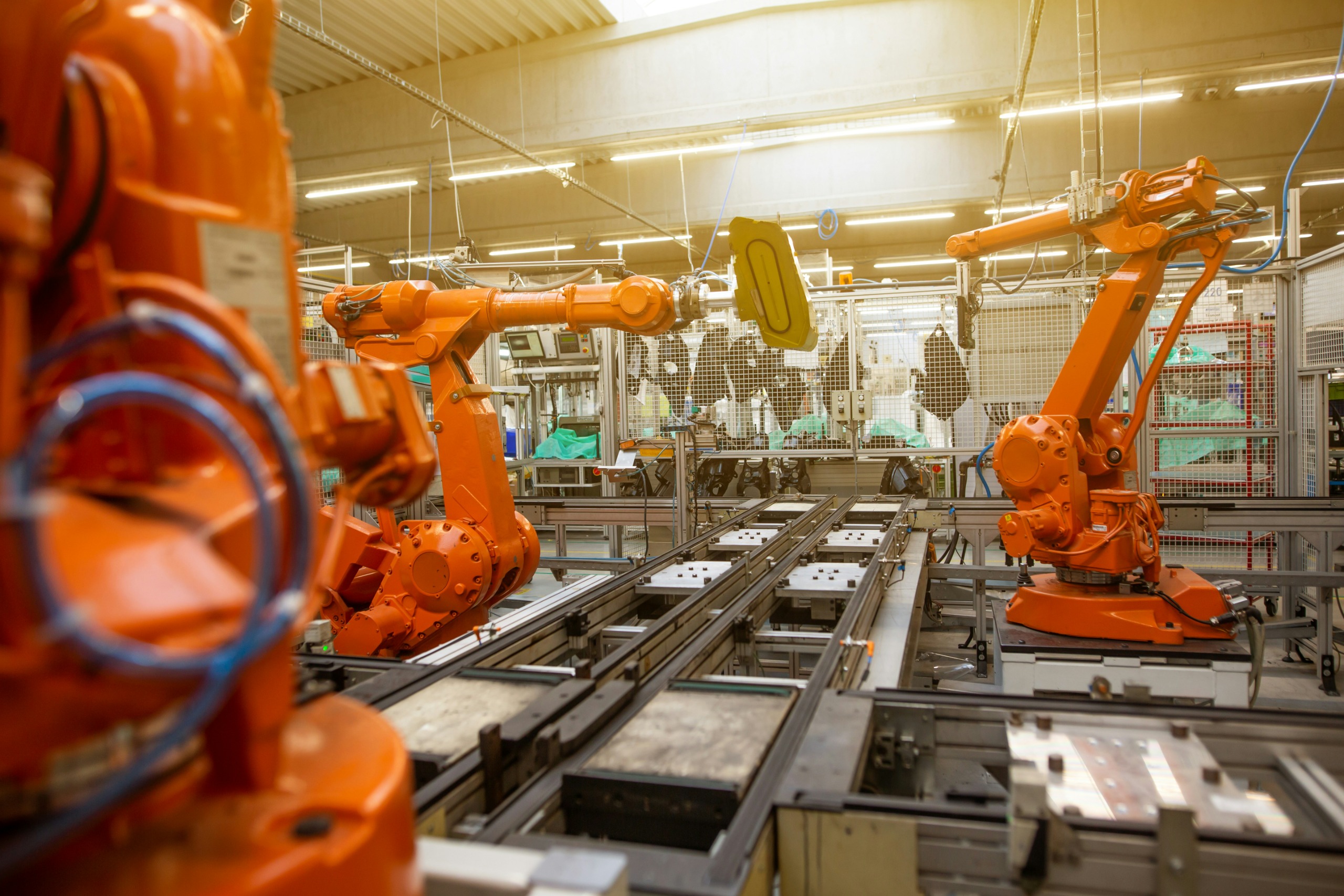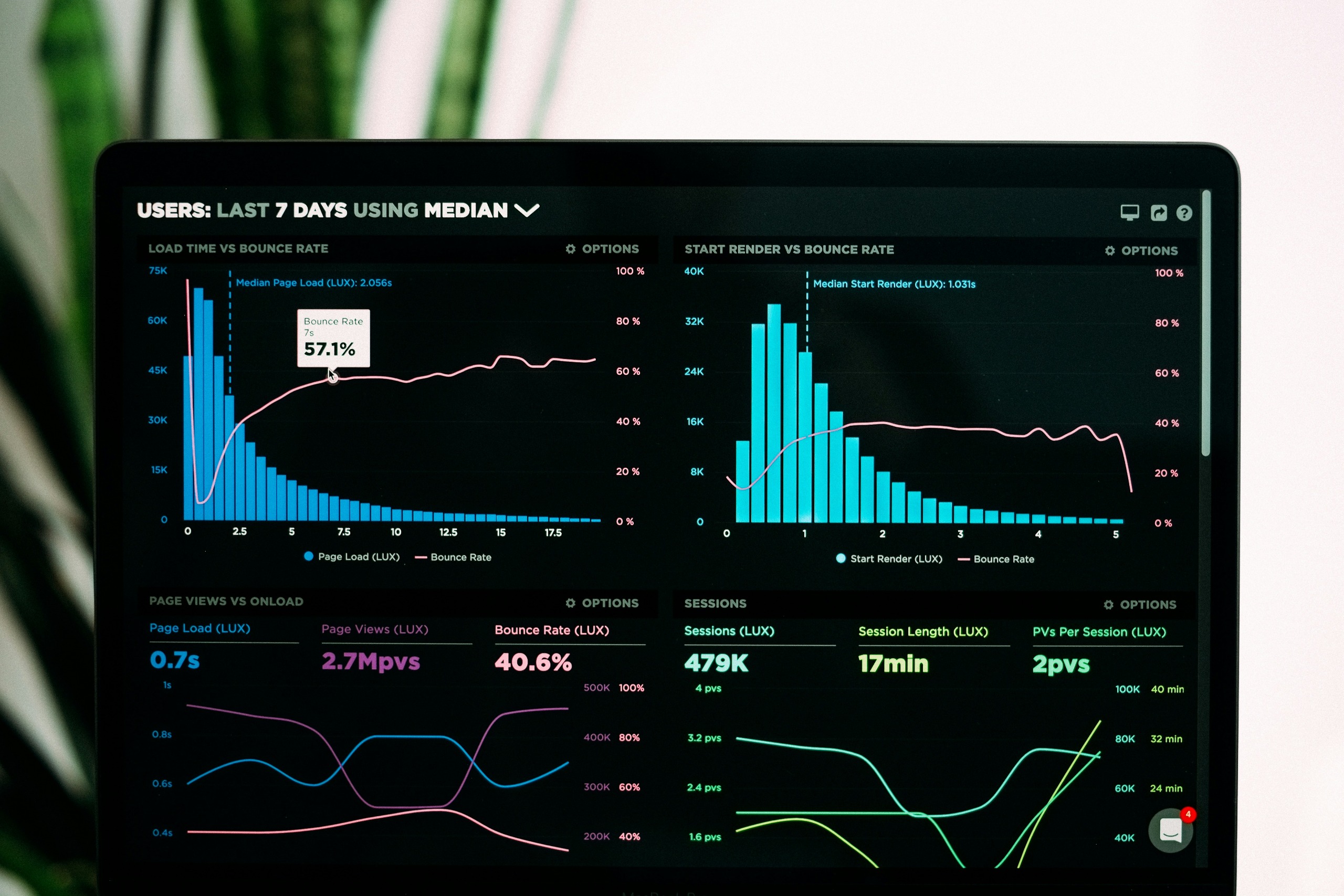In recent years, Artificial Intelligence (AI) has emerged as a transformative force in the business world, revolutionizing operations across various industries. From automation and data analysis to customer experience enhancement, AI technologies are reshaping business strategies and paving the way for unprecedented growth and efficiency.
1. Automation and Efficiency

AI-powered robotic arms assembling products in a factory.
AI-driven automation is one of the most significant impacts on modern businesses. By leveraging machine learning algorithms and robotics, organizations can streamline repetitive tasks, optimize workflows, and reduce operational costs. For instance, in manufacturing, AI-powered robots can handle complex assembly processes with precision and consistency, leading to increased productivity and reduced error rates.
2. Data Analysis and Predictive Insights

A digital screen displaying graphs and charts with AI analytics.
The ability of AI to analyze vast amounts of data in real-time enables businesses to make data-driven decisions swiftly and accurately. Through techniques like predictive analytics, AI algorithms can forecast market trends, customer behaviors, and operational outcomes. This capability empowers businesses to anticipate demand fluctuations, optimize inventory management, and personalize marketing strategies based on individual customer preferences.
3. Enhanced Customer Experience

A customer interacting with a virtual assistant on a smartphone.
AI technologies such as natural language processing (NLP) and machine learning algorithms are transforming customer interactions. Chatbots and virtual assistants powered by AI can provide instant customer support, handle inquiries, and resolve issues efficiently. Moreover, AI-enabled sentiment analysis helps businesses gauge customer satisfaction levels and adapt their strategies to enhance overall customer experience.
4. Personalization and Marketing Automation

A digital marketing dashboard showing personalized recommendations for customers.
AI-driven personalization is redefining marketing strategies by enabling hyper-targeted campaigns tailored to individual customer preferences and behaviors. By analyzing customer data, AI algorithms can recommend products, deliver personalized content, and optimize pricing strategies in real-time. This personalized approach not only enhances customer engagement but also boosts conversion rates and customer loyalty.
5. Ethical Considerations and Governance

A diverse group of professionals discussing AI ethics and governance.
As businesses increasingly rely on AI technologies, ethical considerations regarding data privacy, bias in algorithms, and transparency in AI decision-making processes become paramount. Establishing robust governance frameworks and adhering to ethical guidelines are crucial for ensuring responsible AI deployment and maintaining trust with customers and stakeholders.
Looking Ahead
The future of AI in business holds endless possibilities for innovation and growth. As AI technologies continue to evolve, businesses that embrace AI-driven strategies will gain a competitive edge in agility, efficiency, and customer-centricity. However, navigating the complexities of AI adoption requires careful planning, continuous learning, and a commitment to ethical practices.
In conclusion, AI is not just a technological advancement; it is a catalyst for transformative change across industries. By harnessing the power of AI to automate processes, analyze data insights, enhance customer experiences, and drive personalized marketing efforts, businesses can position themselves at the forefront of innovation in the digital age.

